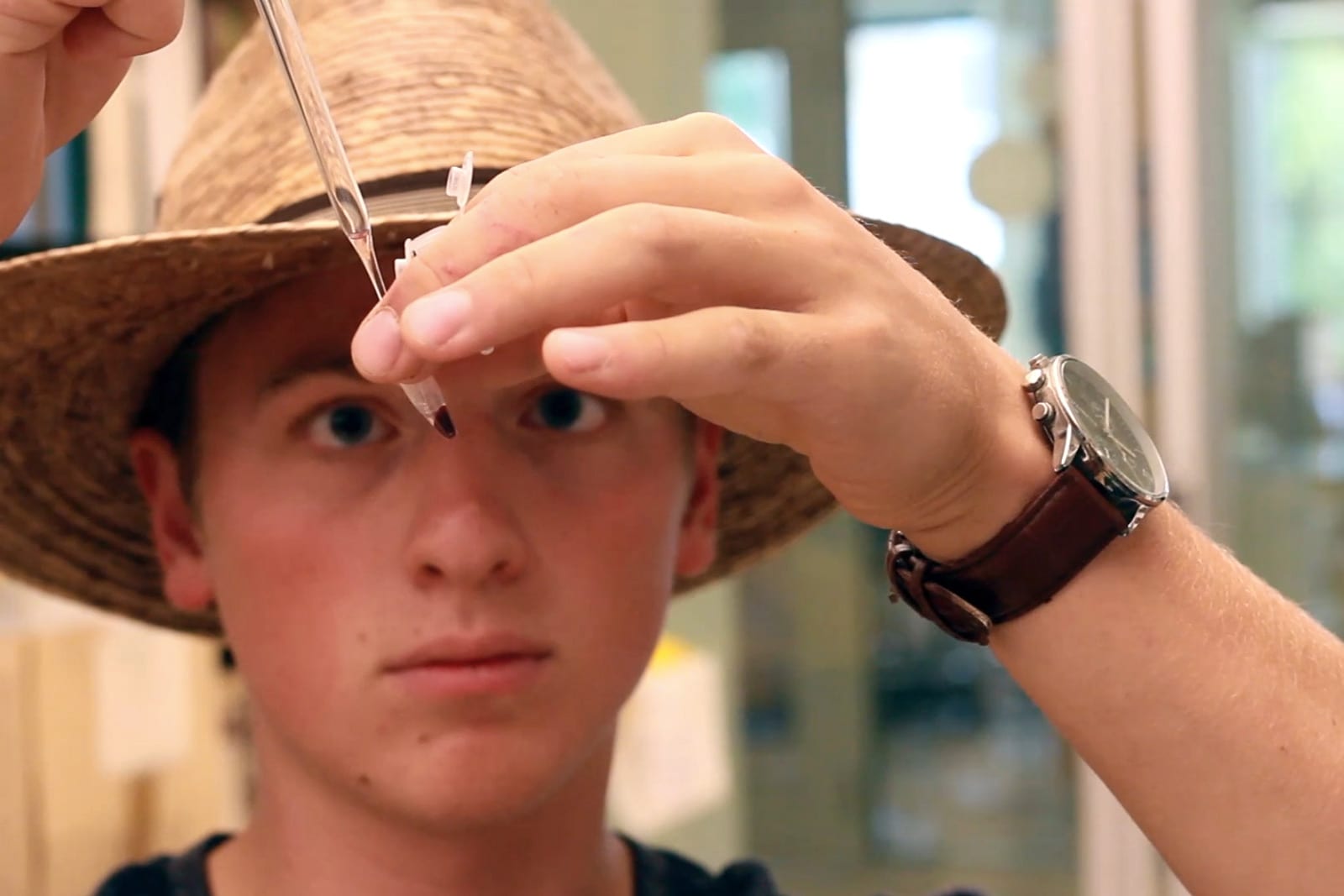Bill Hawthorne traveled two hours from Eckerd College to Eustis, Florida, to gather blood samples from indigo snakes and bring them back to the lab for further analysis. The research on a deadly gastrointestinal disease was a passion project that paid off for the junior biology and psychology student from Fairfield, Connecticut.
At the 41st meeting of the Gopher Tortoise Council (GTC) in Gulf Shores, Alabama, in November, Bill was awarded the J. Larry Landers Student Research Award, a $1,180 grant aimed at defraying research expenses—a grant that also requires winners to present their research at the next GTC meeting.
He started the project of studying Cryptosporidium serpentis in indigo snakes because he was interested—not because he was seeking recognition.
“I absolutely love research. It’s what I have the most fun doing at Eckerd,” Bill said. “Any time you can combine research with working with reptiles and amphibians, I’m interested. I want to know how this disease affects the immune system of indigo snakes.”
Herpetology students have an opportunity to study reptiles found on or near the Eckerd campus including this Florida salt marsh snake (photo credit: Daniel Basa ’21) and the gopher tortoise (photo credit: Bill Hawthorne ’21)
Grant proposals for the J. Larry Landers Award are required to address research concerning gopher tortoise biology or any other relevant aspect of upland habitat conservation and management. Bill said indigo snakes make their homes in gopher tortoise burrows and contribute to the species’ environment.
“Most student awardees are already grad students on career paths to become professors, state biologists or federal biologists,” said Gopher Tortoise Council member Jeff Goessling, Ph.D., who also is an assistant professor of biology at Eckerd. “I, myself, received this grant when I was in graduate school at Auburn University doing my dissertation fieldwork with gopher tortoises.”
Bill learned more about Cryptosporidium serpentis while visiting the Orianne Center for Indigo Conservation (OCIC) in Eustis with the College Herpetology Club. OCIC director Michelle Hoffman said the Center works hard in partnership with the Central Florida Zoo to propagate the eastern indigo snake, a species that eats other snakes, including venomous types, and to reintroduce them into their native habitats. Animals are bred through the Center, and healthy ones who are not held back for breeding are released in Alabama and Florida at two years of age.
“All the animals used in this study are separate from the release groups,” Hoffman offered. “This is a small side project to help us better understand what this disease does. We have many research partners from universities and non-governmental organizations whom we work with regularly.”
Dr. Goessling and Bill Hawthorne discuss herpetology research at Eckerd College.
A small population of snakes at the facility teeming with healthy animals had been diagnosed with Cryptosporidium serpentis, giving Bill a control group to collect data from. Specialists from the Central Florida Zoo helped with the sample collection, and the grant funding helped absorb the costs of the assays.
“What I’m trying to see is if this disease ramps up the snakes’ immune system—that can kill you—or if it depletes the immune system, causing death by secondary infection,” Bill said.
Most of the data has been collected; blood from 50 healthy animals as well as 50 infected ones has been secured. The next step is the analysis, and his final report will be featured at the 42nd meeting of the Gopher Tortoise Council in November 2020. It definitely won’t be Bill’s last project.
“I plan to get as much research experience as I can before I enter graduate school,” he explained. “It’s one of the reasons I chose Eckerd: The opportunities to do research begin as soon as you arrive.”













